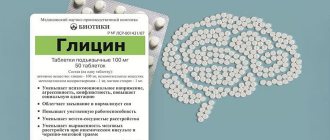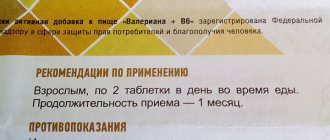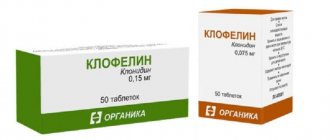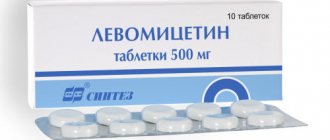Analgin is an inexpensive anti-inflammatory and analgesic. The tablets are great for pain relief. Among other things, the drug has an antipyretic effect. Many people are interested in the question of why Analgin is prescribed; does this well-known drug thin the blood or not? We will deal with this a little below.
Analgin is available in the form of tablets, rectal suppositories and ampoules. The drug can be taken by adults and children. Analgin is usually prescribed for fever, rheumatism, flu and pain of various origins. Many people use this drug to combat blood thinning. Is it correct? Here opinions differ. Some believe that Analgin thins the blood, others do not. In any case, it is better to consult a doctor, he will advise how best to proceed.
Many countries have already stopped taking Analgin; in Russia this drug is still used. But experts unanimously say that this drug should not be taken during pregnancy. One time, of course, will do nothing, but long-term use can lead to negative consequences.
Contraindications for use
The anesthetic has a number of contraindications that cannot be ignored. These include:
- individual intolerance to the components included in the medicine;
- bronchial asthma, especially in the acute stage;
- chronic liver and kidney diseases;
- blood diseases.
It is strictly forbidden for women to take the medicine while pregnant, as well as for nursing mothers.
For several decades, analgin has been the most popular drug in our country. It was taken independently without restrictions for literally any type of pain, without thinking about the possible consequences. A cheap drug that quickly relieves pain is exactly what most people need.
However, according to many experts, this medicine is harmful to health, and its systematic use is fraught with irreversible consequences. Analgin, which has very serious contraindications for use, was discontinued and banned for sale in almost all developed countries of the world. However, in some countries, including Russia, the drug can still be purchased in many pharmacies today.
Its active component, metamizole sodium, has a strong analgesic, antispasmodic and antipyretic effect. Analgin is still used for headaches, dental pain, menstrual pain, intestinal and kidney colic, neuralgia, pain during injuries and after operations, osteochondrosis, and high fever.
We buy this familiar analgin, familiar from childhood. We are not at all interested in contraindications, side effects, dosage, overdose. But in vain, since the drug has many restrictions on its use and can cause serious disruptions in the functioning of the body.
Analgin has the following contraindications: individual intolerance to the drug, bronchial asthma, kidney and liver diseases, blood diseases, pregnancy and breastfeeding.
The drug can lead to the development of allergic reactions: skin rash, Quincke's edema, anaphylactic shock, severe allergic dermatitis, exudative erythema.
Systematic use of analgin leads to attacks of suffocation in those suffering from bronchospasm, decreased blood pressure, impaired renal function, leukopenia, agranulocytosis, and thrombocytopenia.
Long-term use of the drug in large quantities can cause nausea, vomiting, shortness of breath, tachycardia, drowsiness, impaired consciousness, tinnitus, renal failure, hemorrhagic syndrome, convulsions, paralysis of the respiratory tract muscles.
Most doctors have no doubt about the harm of analgin. It is recommended to take it only in exceptional cases, as an “ambulance” for acute pain. It’s even better to give it up completely, replacing it with less dangerous painkillers.
Analgin negatively affects kidney function. According to statistics, about 10% of patients suffering from renal failure acquired the disease as a result of prolonged uncontrolled use of the drug.
Analgin leads to the development of leukopenia, a serious blood disease in which the production of leukocytes that protect the body from inflammation decreases. The combination of analgin with amidopyrine, which some time ago was often used by emergency doctors to bring down a high fever, is especially dangerous for the blood. These drugs are real white blood cell killers. The lethal dose of analgin is from 15 to 20 grams.
It must be said that this drug does not cure the disease at all, but only relieves pain for a few hours. Analgin lovers harm their body not only by taking it, but also by refusing adequate treatment of diseases and only relieving symptoms. As a result, the disease gradually becomes chronic.
It is possible that taking analgin in rare cases when it is necessary to relieve an acute toothache or headache will not cause any particular harm to the body. But its regular use must be abandoned. Analgin can only be used as an emergency remedy. In this case, you should not take the drug for more than three days, and its daily dose should be no more than three tablets. When taking analgin, contraindications and side effects must always be taken into account.
Of course, you don’t want to endure any pain, but you can always choose a less dangerous drug or use folk remedies that have been proven over the years.
Which of us has not had the opportunity to escape from toothache or any other pain with the help of the good old drug “Analgin”? These tablets can really provide emergency assistance in a difficult situation. But here’s the problem: it has long been rumored that this remedy is extremely harmful to health. It turns out that in many countries a drug such as Analgin is banned. There are serious contraindications to its use, and, most importantly, the list of them is huge.
In addition to the agranulocytosis mentioned above, this drug, when taken uncontrolled, can lead to severe dysfunction of the urinary system. This is expressed in renal dysfunction, proteinuria, anuria, oliguria and interstitial nephritis. The hematopoietic organs can be seriously damaged (thrombocytopenia, leukopenia develops).
The drug "Analgin" and its derivatives can cause severe allergic reactions, anaphylactic shock, exudative erythema, angioedema, and urticaria. In no case is it recommended to use this drug for blood diseases, as well as for bronchial asthma and pathology of the liver and kidneys.
In addition to the agranulocytosis mentioned above, this drug, when taken uncontrolled, can lead to severe dysfunction of the urinary system. This is expressed in renal dysfunction, proteinuria, anuria, oliguria and interstitial nephritis. The hematopoietic organs can be seriously damaged (thrombocytopenia, leukopenia develops).
The drug “Analgin” and its derivatives can cause severe allergic reactions, anaphylactic shock, exudative erythema, angioedema, and urticaria. In no case is it recommended to use this drug for blood diseases, as well as for bronchial asthma and pathology of the liver and kidneys.
Consequences
An overdose when taking a medicine causes negative consequences, depending on the complexity of intoxication and the duration of taking the toxic substance. The time spent on first aid and subsequent treatment also has an impact. The severity of the condition is determined by the presence of pathologies existing in the body and the age of the patient. How many tablets must be taken to cause death can be easily determined if 8 g of the lethal dose is divided by the contents of one tablet.
- Death from taking large quantities of tablets containing metamizole sodium.
- Kidney and liver damage develops.
- Bleeding occurs in vital organs: lungs, brain, heart. This leads to the impossibility of further normal functioning of the affected organ.
- The immune system does not work, concomitant diseases develop.
When can you take the drug “Analgin” and in what doses?
For the first time, the United States announced that the use of the drug “Analgin” could be fatal to health in 1973. It was then that scientists found that this drug can have an extremely negative effect on human blood, causing a disease such as agranulocytosis (destruction of white blood cells, leukocytes, caused by severe damage to the bone marrow).
But the harm of “Analgin” was not limited to this. Research has revealed a relationship between taking this drug and the occurrence of anaphylactic shock in some patients, followed by death. Following the United States, Europe sounded the alarm. Despite the full resistance of pharmaceutical companies, which were accustomed to making fabulous profits thanks to sales of the popular painkiller, a drug such as Analgin was banned in almost all countries. The contraindications outweighed the benefits.
In order to minimize the risk, you should not use Analgin tablets as an antipyretic for colds. There are many other, safer drugs for this. Let there be “Analgin” tablets in the first aid kit, but they should be used only as a one-time emergency aid to relieve pain, for example, at night, when it is impossible to get to a clinic or hospital.
Analgin is a non-narcotic analgesic of artificial origin. The active ingredient is metamizole sodium. This drug has antipyretic, antispasmodic and analgesic effects. Most often the medicine is taken for:
- persistent migraines;
- toothache as first aid before visiting a doctor;
- periodic pain in women;
- colic in the kidneys or intestines;
- neuralgia;
- pain after injury;
- postoperative period;
- decrease in body temperature.
People often start taking analgin without consulting a doctor. At the same time, few people are interested in the instructions for this drug, contraindications and possible side effects. And it’s completely in vain, this painkiller is considered quite strong and, if taken uncontrolled, can cause serious harm to health.
For the first time, the United States announced that the use of the drug Analgin could be fatal to health in 1973. It was then that scientists found that this drug can have an extremely negative effect on human blood, causing a disease such as agranulocytosis (destruction of white blood cells, leukocytes, caused by severe damage to the bone marrow).
But the harm of Analgin was not limited to this. Research has revealed a relationship between taking this drug and the occurrence of anaphylactic shock in some patients, followed by death. Following the United States, Europe sounded the alarm. Despite the full resistance of pharmaceutical companies, which were accustomed to making fabulous profits thanks to sales of the popular painkiller, a drug such as Analgin was banned in almost all countries. The contraindications outweighed the benefits.
In order to minimize the risk, you should not use Analgin tablets as an antipyretic for colds. There are many other, safer drugs for this. Let there be “Analgin” tablets in the first aid kit, but they should be used only as a one-time emergency aid to relieve pain, for example, at night, when it is impossible to get to a clinic or hospital.
It is a sad truth that analgin is banned in some EU countries. It is sad that, despite the fact that analgin is prohibited, complex painkillers based on metamizole sodium are present in large quantities on the pharmacy counters of these countries.
We are told a lot that metamizole sodium has a negative effect on the human hematopoietic organs and brain. But doesn’t it act exactly the same as part of baralgin?
There is a certain danger in this. If a person is sure that there is harm from analgin, then he is absolutely calm in relation to baralgin or pentalgin. This leads to the fact that pentalgin begins to be taken uncontrollably in large quantities. Meanwhile, you can get harm to your health from baralgin or pentalgin much faster than from analgin.
This is how, due to commercial benefits for pharmaceutical manufacturers, human life and health are put at risk.
First aid for adults and children
To prevent complications, you should know what to do in case of Analgin poisoning. Providing assistance before the ambulance arrives should include the following actions:
- The stomach should be rinsed; for this you need to give the patient a glass of warm water or a light solution of potassium permanganate.
- Then press on the root of the tongue and induce vomiting. This action is effective if no more than 40 minutes have passed after taking the medicine.
- If the procedure is performed on a child, then place him on his stomach on his knees so that the erupted mass does not enter the respiratory tract.
- This should be repeated several times until the water coming out is clean. Washing is not permissible in case of loss of consciousness, during pregnancy in women, difficulty swallowing, or to help children under 5 years of age. Washing should not be used for ulcerative lesions of the gastric mucosa.
- Give an adsorbent, activated carbon is suitable for this purpose (calculation is made based on body weight: one tablet per 10 kg of weight), drugs Smecta, Polysorb.
- Any laxative (a solution of magnesium sulfate in powder) or a salt enema can remove the active substance from the intestines.
- The victim needs to be laid on his side and observed; in case of loss of consciousness, a cotton swab with ammonia is used.
Under no circumstances should you feed the child, this will speed up the process of absorption of the drug into the blood.
Why the ban did not affect Russia
The final expulsion of the drug "Analgin" from the markets of Europe and America occurred in the early 90s of the last century. This event coincided with the collapse of the Soviet Union. Pharmaceutical companies producing the drug “Analgin” and drugs based on it were saved from ruin by the fact that they redirected their dangerous products to the new Russia and the countries of the former USSR.
The final expulsion of the drug “Analgin” from the markets of Europe and America occurred in the early 90s of the last century. This event coincided with the collapse of the Soviet Union. Pharmaceutical companies producing the drug “Analgin” and drugs based on it were saved from ruin by the fact that they redirected their dangerous products to the new Russia and the countries of the former USSR.
What is the danger of analgin
Metamizole sodium can be truly dangerous if taken regularly and unsupervised. Doctors say that you can only drink 2 analgin tablets a day. In this case, it is advisable to use the drug only as first aid, and then switch to more gentle medications. It is better not to use this pain reliever for the treatment of chronic diseases.
If you take this drug for a long time, the following dangerous conditions may occur:
- The number of leukocytes in the blood decreases.
- The functioning of the cardiovascular system is disrupted.
- The functioning of the nervous system is disrupted.
- Attacks of suffocation are observed.
- Blood pressure decreases.
- Thrombocytopenia is observed.
In addition, immunity steadily decreases, a person becomes seriously ill for a long time.
Metamizole sodium can be truly dangerous if taken regularly and unsupervised. Doctors say that
. In this case, it is advisable to use the drug only as first aid, and then switch to more gentle medications. It is better not to use this pain reliever for the treatment of chronic diseases.
Analgin (metamizole sodium) is used as a powerful analgesic, antipyretic and antispasmodic agent. It is prescribed for acute pain of medium and low intensity of various origins (biliary, intestinal and renal colic, neuralgia, myalgia, trauma, swelling, headache or toothache, dysmenorrhea, radiculitis, febrile syndrome in inflammatory diseases, etc.)
Side effects from taking analgin are often underestimated, but they exist and are quite serious. Complications include allergic reactions (especially from the urinary and nervous systems), hematological, cardiovascular complications, and local disorders.
When self-medicating, you must carefully read the instructions (insert leaflet) of the drug. The adverse reactions indicated in it are expected, that is, they most likely will not occur if the patient first consults with the attending physician, who will assess whether there is any risk associated with taking the drug.
Metamizole (analgin) for many decades was an emergency drug in our country, and not a means for the treatment of chronic diseases. That's how it should remain.
One of the most serious side effects of analgin, which seriously worries doctors, is associated with a serious blood disease - leukopenia. Long-term use of analgin can negatively affect the number of leukocytes. But the reasons for this phenomenon include reduced immunity and poor ecological environment in the patient’s place of residence.
Recently, a fairly aggressive campaign has been launched against analgin on the Internet. Many domestic experts consider it custom-made and beneficial, first of all, to large manufacturers of new expensive drugs.
In the 60s of the last century, medical circles were shocked by a report from the United States: women taking the drug thalidamide for a number of years led to the birth of several thousand malformed children. WHO has tightened control measures. If even isolated, but serious cases of adverse reactions were recorded in one or two countries, the drug was immediately banned.
Nowadays, sufficiently proven drugs are entering the global pharmaceutical market. For example, in the USA, up to one and a half billion dollars are spent annually on the program for their study. However, there is one significant “but”: according to the criteria of the same WHO, the maximum positive and negative effects of a medical drug are revealed from the moment of its mass production and use for 10-20 years!
Providing first aid and treatment methods
It must be remembered that there is no specific antidote for analgin overdose. Treatment is symptomatic. The victim must call an ambulance and be taken to the hospital. Before the arrival of doctors, it is necessary to induce artificial vomiting. To do this, the patient is given clean boiled water to drink and pressed on the root of the tongue.
It must be remembered that vomiting should not be provoked in infants, pregnant women, elderly citizens and unconscious patients.
If a small child is vomiting, to reduce the risk of vomit entering the respiratory tract, he or she should be placed face down on your lap.
It is also worth taking adsorbents, for example, smecta, polysorb. You can give the victim a laxative or give an enema. Under no circumstances should you give antiemetic drugs, such as cerucal. Vomiting helps remove the drug from the body, and when it stops, the level of the active substance in the blood increases and, consequently, its toxicity.
When admitted to the hospital, they may prescribe:
- gastric lavage through a tube;
- siphon enema;
- forced diuresis, the essence of which is to accelerate the excretion of urine from the body, and therefore the drug;
- hemodialysis;
- when a bacterial infection occurs, the latest generation antibiotics or reserve drugs are prescribed;
- if convulsions occur, diazepam or barbiturates are injected into a vein;
- carry out symptomatic therapy.
What happens if you drink a lot of analgin and often
We still have the most important question - is it possible to drink analgin. Let's try to answer very honestly. Most likely, you can drink analgin only in the amount necessary to relieve pain until the cause that caused it is eliminated. In other words, you should not use analgin to treat caries or a broken leg. With the help of analgin, you can only relieve pain for a short time and immediately consult a doctor.
However, there is an exception to this rule. If you have acute abdominal pain, pain under the right rib, or pain in the left rib, taking analgin or any other painkiller is strictly prohibited. This may cause misdiagnosis.
Analgin should be taken strictly according to the recommended dosage, i.e. no more than 2 tablets per dose, no more than 3 times a day, and no more than 3 days in a row. In this case, the harm of analgin will not be terrible for you. And it is unlikely that analgin will be banned in our country.
If a person drinks 5-6 tablets of sodium metamizole per day, this will ultimately affect his health. The person will periodically experience nausea, vomiting, shortness of breath, tachycardia and abnormal drowsiness. In severe cases, fainting, seizures, tinnitus and kidney failure may occur.
Do not forget that analgin has a very bad effect on the kidneys. Thus, according to statistics, about 10% of patients with renal failure acquired this disease due to long-term use of an analgesic.
Side effects
We should not forget about the possible side effects that may occur if a person uses pills uncontrollably. The following conditions may develop:
- Allergic skin rashes.
- Quincke's edema.
- Anaphylactic shock.
- Exudative erythema.
Side effects may occur even if the therapeutic dosage is observed if a person is hypersensitive.
If your health condition worsens during treatment with analgin, stop taking the drug immediately.
Leukopenia
Analgin can lead to the development of a life-threatening disease such as leukopenia. In this case, the production of leukocytes, which protect a person from inflammatory processes, decreases. A particular health hazard is posed by the combination of two medications - analgin and amidopyrine, which ten years ago emergency doctors injected unfortunate patients with high fever. These two medications together almost completely kill white blood cells.
The benefits and harms of analgin are almost equivalent, and they depend only on the person who takes this medication. If you take the medicine as prescribed by your doctor and take into account contraindications, it will not cause harm to your health.
Analgin, like every medicine, has a whole list of side effects, where without them. For analgin, this is an allergic reaction, impaired renal function, red coloration of urine, disruption of the functioning of the hematopoietic organs, and decreased blood pressure.
By the way, this applies not only to analgin, but to all medications based on metamizole sodium. For example, baralgin, optalgin and others.
If you drank analgin, you probably noticed that the urine is colored, becomes reddish, this is one of the harmful properties of analgin - a negative effect on the kidneys, when taking this drug, various degrees of allergic reactions are possible, up to Quincke's edema, but the most dangerous is that analgin affects hematopoiesis, changing the structure of the blood in a bad way.
Analgesics cause blood cancer. The oldest and most popular remedy (banned in Europe and replaced by ibuprofen).
It should be noted that many painkillers are complex, so they can simultaneously affect several aspects. I prefer tempalgin based on analgin.
Leukopenia
When taking analgin, leukopenia is possible. This is a blood disease associated with a lack of white blood cells. Other side effects are also possible: allergic reactions, hematological, cardiovascular complications, local disorders.
Any drug, of course, has its side effects. Why such attacks on analgin. Analgin, like paracetamol, as well as aspirin, is an NSAID, a non-steroidal anti-inflammatory drug. And its side effects are the same as those of aspirin and paracetamol. Only unlike them, it has more breadth of therapeutic action, that is, it is more difficult to overdose.
And such drugs as baralgin, spasmalgon, maxigam, revalgin, spasmalin, baralgetas, baral. One of the components of which is metamizole sodium (the international generic name for analgin). Half of these drugs are foreign-made. So where are they fighting it, only in the USA, in please your paracetamol.
Of course, it is not a panacea for all diseases. But sometimes there is no drug better than it. As an antispasmodic, it is one of the most effective. As an antipyretic, and much more. Now, of course, it has already been supplanted; radicular pain is better treated with diclofenac. It is supposedly better to reduce the temperature with nurafen (by the way, our ibuprofen) But as an ambulance it is not replaceable for hepatic and renal colic.
Somehow they stopped buying it from us, our bosses, having read articles about it, thought that there was no need to buy it. We had problems, it turns out that it is a good antipyretic. We tried everything: Nurofen, paracetamol, diclofenac. But the patient had a temperature of 40, nothing doesn’t help. We went to the departments and gave 2 am. of analgin.
Doctors have come to the conclusion that analgin, so familiar to us since childhood, is harmful to health, although small doses of this medicine are still considered not dangerous. The main negative effect of analgin on the body is that it poisons the liver. In addition, with regular use of analgin, a person develops addiction, or even worse, dependence.
I was convinced from my own experience that analgin is very harmful to the heart and kidneys, it takes a very long time to be excreted from the body in the urine, and has no beneficial effect on the blood, including during menstruation... for example, I know real cases when some ladies are going on an intimate date knowing in advance that something unexpected might happen in pastels, i.e. e.
If you go on your period at the most crucial moment for both partners, if you take analgin the day before or a couple of days before, then your period will not come on time, but there will be a delay of 3-4 days. Out of ignorance, I used to take analgin for headaches and other pains, until one day, without waiting for my period on the due day, I ran to the doctor, thinking that I was pregnant, but it turned out, no, I just delayed my menstruation with analgin, which I never do anymore. I declare with complete confidence that ANALGIN is very HARMFUL, especially for the female body.
and I’ve heard for a long time that analgin affects the heart, and since I very rarely take pills, if necessary, for general pain I still use baralgin, and if I have a headache, then citromon
In many countries around the world, analgin is generally prohibited for sale as a pure substance.
And it’s not for nothing that such a restriction was introduced. Analgin is harmful to the body.
1.Severely affects the kidneys. 10% of people attending hemodialysis procedures have abused analgin in the past.
2. This drug significantly inhibits the hematopoietic function of the bone marrow. Immunity is greatly reduced, because the bone marrow produces our body's defense - leukocytes.
Yes, and other analgesics are not quot; a giftquot; for good health. They only drown out the pain, leaving the problem of its occurrence unresolved.
There may be harm from analgin, but one tablet of analgin brings down the temperature to 39.8 in half an hour. But paracetamol up to four tablets does not cope with this. Doctors believe that analgin should be taken no more than three tablets a day and no more than three days at all. It has a negative effect on the kidneys and can lead to allergic dermatitis.
When used frequently, Analgin is harmful and can even cause severe changes in the blood count. But it should be remembered that other medications are not harmless. For example, paracetamol at a small dosage can become extremely dangerous for the liver and kidneys. Aspirin is contraindicated in childhood.
Analgesics and antipyretics should be taken strictly according to indications and for a short amount of time - one day, maximum three days. If symptoms do not go away, be sure to see a doctor.
It should be remembered that when you have a cold, you should only bring down a sufficiently high temperature. You should not take analgin or paracetamol with a slight increase in temperature.
There are no harmless drugs, and I believe that the harm of analgin is not at all a myth, as many people think. This is not a panacea, and in the whole world, including in developed European countries, it was banned for a reason.
Russian pharmaceuticals are one of the last to fight for analgin against the World Health Organization, since it is cheap and effective. It has a large number of side effects; of course, it does not eliminate the cause of pain and is addictive. Because of such drugs, many people bring their disease to the chronic stage, because they don’t treat, but simply quot; drown outquot; symptoms.
Many of my friends drink several packs of analgin during menstruation. This is not normal, I think.
Numerous studies have proven that excessive use of analgin leads to kidney failure. Analgin is also capable of suppressing bone marrow tissue in large quantities, thus limiting the production of leukocytes, which leads to poor resistance of the body to infections.
And analgin can also be addictive. And your head will hurt for no reason, requiring you to take analgin again.
I don’t know if it’s true, but analgin delays the arrival of menstruation by 3-4 days if taken for a headache or some other pain, a couple of days before them, or on the eve of menstruation... tested from personal experience. Some ladies, if they are going on an intimate date, know what can happen, i.e. unexpectedly for the partner, she has red days, a day or two before them they specially take analgin, thereby delaying the natural process for several days!
The legislation on pharmacotherapy in our country requires tightening. The media alone is worth it! Actors in the role of doctors call for taking certain “harmless” medications - isn’t this absurd? In no other European country will you see advertisements for medications on a bus or tram. And here we do it in violation of international and domestic regulations. There have not been, are not, and are not expected to have safe drugs in the foreseeable future.
Overdose symptoms
Signs that a victim has analgin poisoning depend on the amount of medication taken and the state of health. Acute intoxication develops within 3-5 hours. If the lesion with metamizole sodium is chronic, the appearance of the results of poisoning will be delayed for three days.
Doctors conditionally divide the symptoms of analgin overdose into 4 forms.
Exceeding the permissible limits for taking medication is accompanied by the following symptoms:
- The patient complains of dizziness.
- Intoxication causes nausea and vomiting.
- There is a general feeling of malaise in the body.
- The patient becomes agitated and motor activity increases.
- Body temperature drops sharply, heart rate increases. Blood abruptly leaves the skin, causing it to become pale.
If drug intoxication occurs in a severe stage, the victim experiences ominous symptoms:
- The main signs of damage by analgin become more intense. A red color appears in the urine.
- The victim's fingertips and toes begin to turn blue, and tissue cyanosis is observed on the lips.
- A comatose state develops.
When a lot of medication tablets are ingested, it manifests itself with the following symptoms:
- The process of hematopoiesis is disrupted and gradually fades.
- Dysfunction of the internal organs responsible for digesting food also develops.
- In the stomach, the integrity of the mucous membrane is disrupted, which leads to gastritis. As the mucous membrane is destroyed, the walls of the organ are negatively affected, and an ulcer appears.
Panacea for pain
Analgin was synthesized a long time ago. Back in 1920, during the search for a readily soluble form of amidopyrine. It was used as an affordable pain reliever, since there was no wide range of pain relievers at that time. Of course, narcotic analgesics were used, but the medicine of that time already had sufficient data on drug addiction, and this group of drugs was used only in appropriate cases.
Analgin has become a universal pain reliever with sufficient effectiveness. In fact, the very name of the drug speaks of “no pain.” Compared to modern analgesics, metamizole sodium (this is the chemical name of analgin) is at the very end of the list in terms of its analgesic effect, but this does not prevent it from being included in a dozen combined painkillers.
Analgin belongs to the group of non-steroidal anti-inflammatory drugs, or NSAIDs, the most common and most frequently replenished group of drugs. This drug has almost no anti-inflammatory activity, unlike, for example, aspirin. But it has a pronounced analgesic effect and also has antispasmodic activity, that is, it is able to eliminate muscle spasms.
Until recently, it was used as an antipyretic, even in pediatric practice, since this effect is also present in analgin.
With the advent of faster-acting and safer drugs, for example, paracetamol, doctors began to gradually abandon the use of analgin. This is surprising, but there are many doctors who work “the old fashioned way” and do not recognize modern methods of treating pain. It would seem that doctors should take care of the health of children first of all, but the results of some medical studies are amazing.
Despite the recommendations of the Pharmacological Committee of Russia, about 20% of pediatricians recommend analgin to relieve fever and relieve pain in children! At the same time, modern recommendations contain instructions about the inadmissibility of using analgin before the age of 18.
Analgin is a legally prohibited drug in many countries. In Australia and the UK it has not been applied since 1965, in the USA - since 1977, in Italy - since 1979, in Germany - since 1987, in Spain - since 1989. The list of countries goes on, and it includes not only economically developed countries, but also many developing ones - the Philippines, Bangladesh, Pakistan, Peru, Singapore.
Principles of treatment
The procedures are carried out in a hospital setting; therapy in an outpatient clinic is not possible, as there is a high risk of complications. Qualified assistance consists of several areas, which are described in detail below.
Forced diuresis
This phrase implies an increase in the volume of fluid released through the kidneys with the introduction of a large amount of specialized solutions. For this, about four liters of plasma expanders, crystalloids and a loop diuretic, for example Furosemide, are used. The dose is selected individually, taking into account the patient’s body weight and his well-being. During the procedure, the doctor must constantly monitor the main blood and urine parameters.
Stool stimulation
A smaller volume of the active substance can be excreted along with feces if Analgin is taken orally. Castor oil or magnesium sulfate is used in practice as a laxative. Herbal medicines are not recommended, since their effect is weaker and the effect occurs much later.
Antidote therapy
Unfortunately, there is no specific substance that completely suppresses the effect of the anesthetic. Sorbents can be used as an “antidote,” but they do not guarantee 100% cure in a matter of minutes.
Hemodialysis
The procedure is based on cleansing the blood of toxins using an external filtering device. It has a number of nuances and contraindications, however, it is widely used in intensive care and surgery. For treatment, the patient is placed on a couch, the femoral vein is catheterized and connected to the machine. At the same time, saline solutions are administered to stabilize the water-electrolyte balance.
Fairness of the accusations
What is this historical drug accused of? The reason for all the attacks is the proven possibility of very serious adverse reactions, primarily dysfunction of hematopoiesis. Doctors assess the possibility of such a reaction as very high, even with occasional use of analgin.
Allergic reactions in the form of such a serious complication as anaphylactic shock are observed with the same frequency as inhibition of hematopoiesis. If you add to these side effects a very real threat to the stomach, kidneys, and liver, the danger of use becomes obvious.
In Russia, analgin continues to be produced by many manufacturers and is sold uncontrolled in all pharmacies, that is, without a prescription and a corresponding warning in the annotation. According to medical statistics, analgin is the most popular painkiller in Russia. What is the reason for such amazing fame? The answer is simple.
Analgin has been known for almost 90 years, in the minds of many people it is “a proven remedy that my grandmother used to treat,” its price is extremely low, no prescription is needed to purchase at a pharmacy, and there is widespread misconception about its safety.
To be fair, it must be added that there are many other outdated drugs that have no less serious and dangerous consequences for human health, but are still used for various reasons. But it was analgin that suffered the fate of the first “persecuted” drug.
Against the background of such data, I would like to advise you to carefully read the instructions and not to use any medications unless absolutely necessary. Who knows, maybe in a few decades scientists will discover dangerous side effects of relatively harmless modern medications?
About self-medication
Every day in the world, about 300 million (!) people use one or another painkiller, two thirds of them prescribe treatment for themselves. There are a lot of painful conditions when pain indicates physiological (natural) and quickly passing disorders in the body. There is nothing wrong with a person knowing exactly what medicine to take to get rid of pain.
But all painkillers do not act on the cause of the pain, they only help cope with it, if we speak in medical language - they are symptomatic remedies. Therefore, you need to be extremely careful when it comes to chronic pain. Conventional analgesics may not help, but only harm! This is especially true for “psychogenic” pain, which occurs for no apparent reason against the background of emotional disorders.
Are you here
No medicine is completely safe; even the most harmless in large dosages can cause toxic reactions. Many drugs have long since become a thing of the past, and each of them represents a milestone in the history of pharmacology. In Russia, some medicines are still used, which the entire civilized world has long abandoned as scientifically outdated and toxic.
Analgin is prohibited for use in 40 countries of the world, but in our country it is used independently and as part of combined painkillers.
Harm of analgin to the human body
Is analgin (metamizole sodium) dangerous for our health? Analgin - myths about the dangers of metamizole sodium. In many countries around the world, medications containing analgin (metamizole sodium) are prohibited for sale. Why? Is everything here “clean”? In the United States, metamizole sodium was removed from the market in 1977 due to the risk of agranulocytosis, a fatal blood disorder.
In Germany, between 1981 and 1986, 94 people died after taking drugs containing metamizole sodium. 46 of them are from agranulocytosis. In 1987, drugs containing metamizole sodium were banned from sale without a prescription in Germany. This example was repeated by Sweden. In 1999, the drug was removed from the market. In 2000, it was withdrawn from sale in Ireland, and its import into Singapore was generally prohibited.
How should real doctors feel about the flood of information flooding the medical and paramedical media?
What NSAIDs are allowed on the European and US markets and are they safe? News analysis. It turns out that the famous “Chicago poisonings” in 1982 with a sad outcome were associated with the most popular painkiller Tylenol (paracetamol). For Johnson {amp}amp; Johnson, the manufacturer of the drug, meant the loss of its best-selling brand and millions in losses.
Most analysts predicted the death of Tylenol. However, by the end of the year, the drug had regained a quarter of the American painkiller market. How did they do it? Further, it turned out that the use of drugs based on paracetamol can lead to reproductive dysfunction and problems with fetal development.
The corresponding data was published in the journal EBioMedicine. And again silence. Or the same Advil (ibuprofen), the most popular among women? In 2013, The Lancet published a devastating article that some popular painkillers (including ibuprofen and diclofenac) may increase the risk of cardiovascular disease.
In addition, it was found that men taking ibuprofen 3 times a day for 3 months increased the risk of impotence by 38%. Specialists from the non-profit organization Kaiser Permanente (USA) spoke about this in 2011 in The Journal of Urology. However, for some reason no one is in a hurry to ban either paracetamol or ibuprofen. And analgin has saved and is saving millions of lives on earth, including children’s!
We tried to answer these and other questions about analgin and “around it” in Doctor’s Corner.
see Is analgin dangerous for our health? ???⚕️











